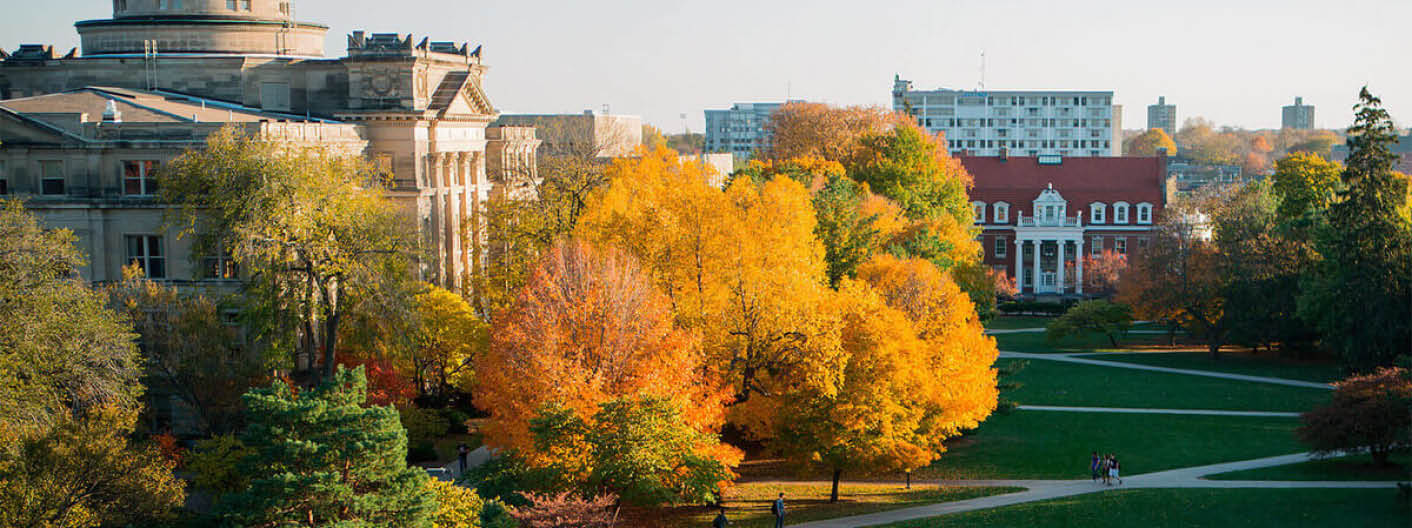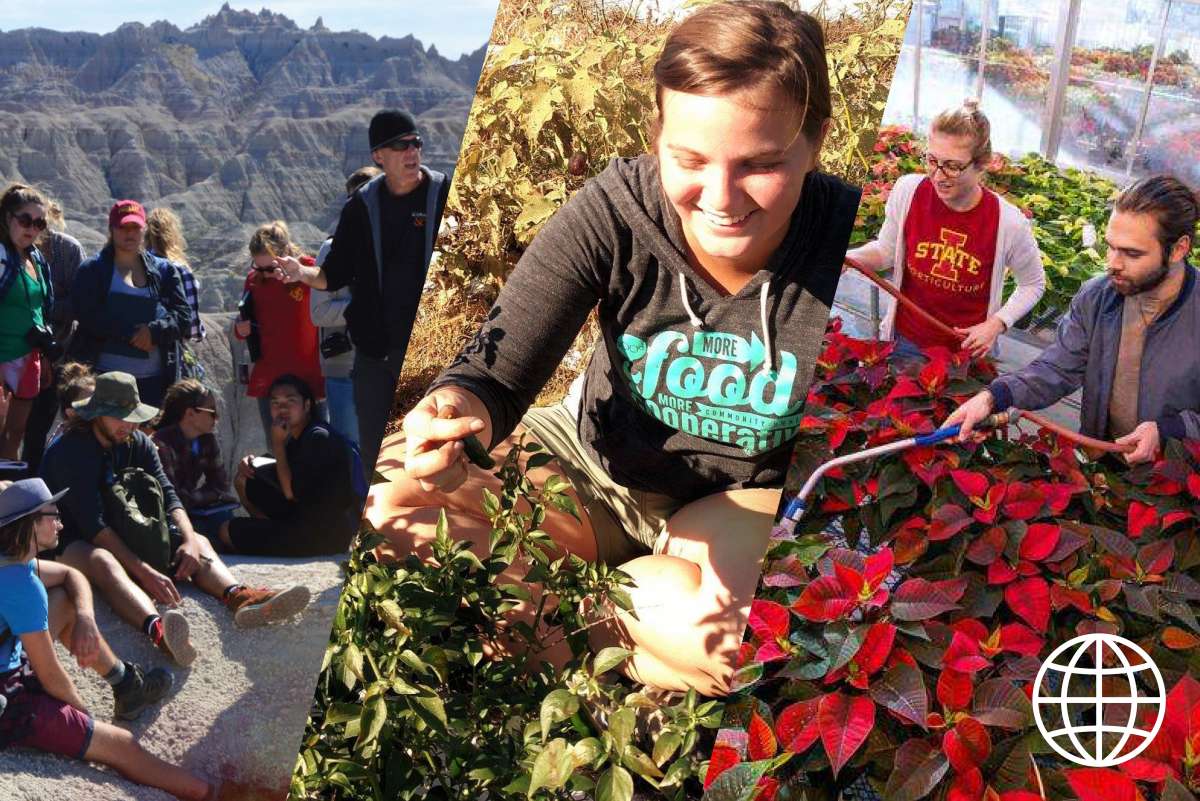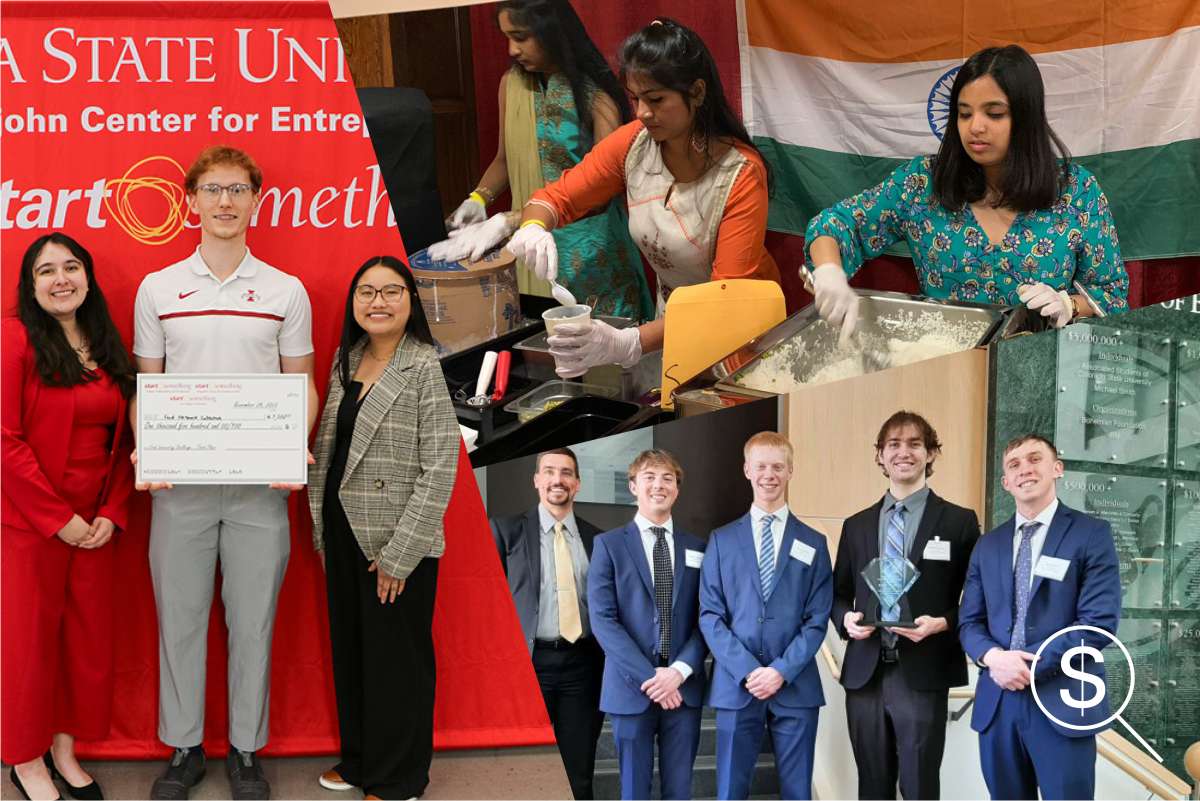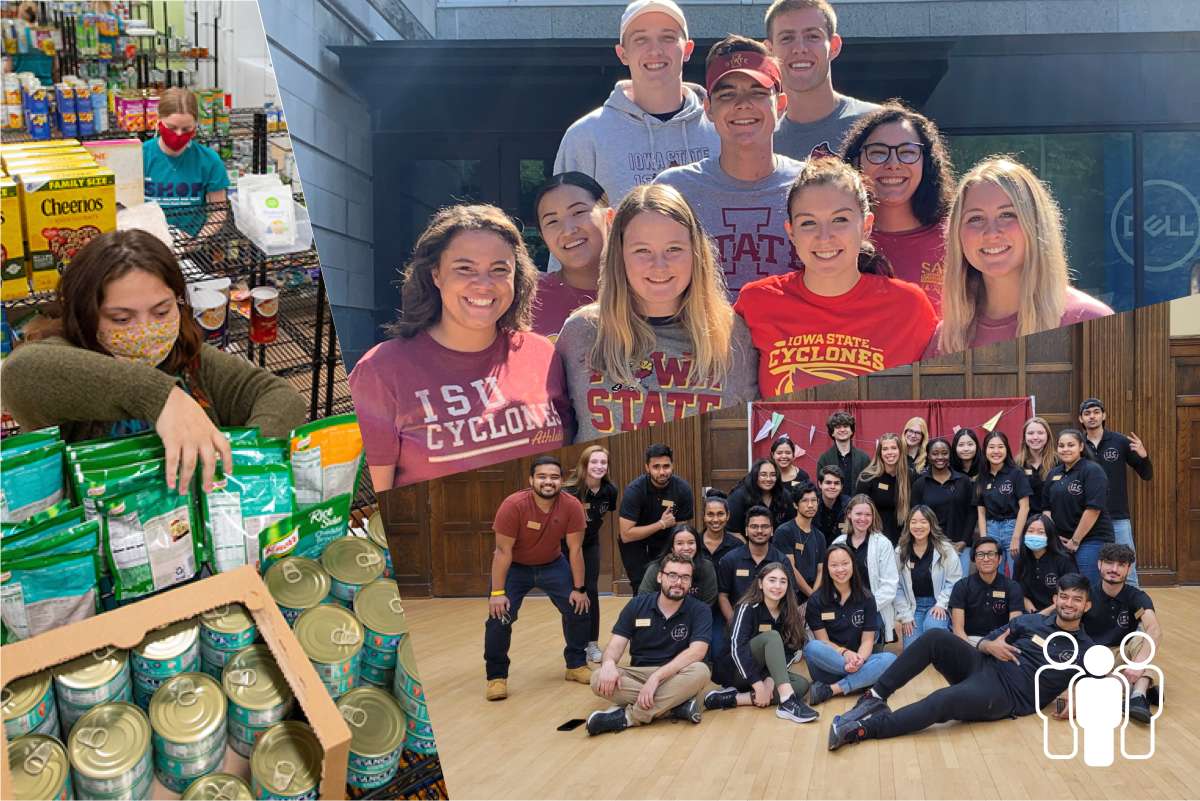Defining Sustainability
Iowa State University seeks to educate, engage and empower students, faculty, staff and campus visitors about the all-encompassing opportunity of living a sustainable life through the collective consideration of three components – environment, economy and society. The full and simultaneous integration of all three components ensures a more sustainable and resilient present and future. Each component of sustainability is discussed below and also highlighted within the Campus Commitment webpages. Opportunities for individual commitment to and implementation of the three components are included on the Take Action webpages. Iowa State University implements sustainability commitment and celebrates sustainability achievement through its Live Green! Initiative.
| 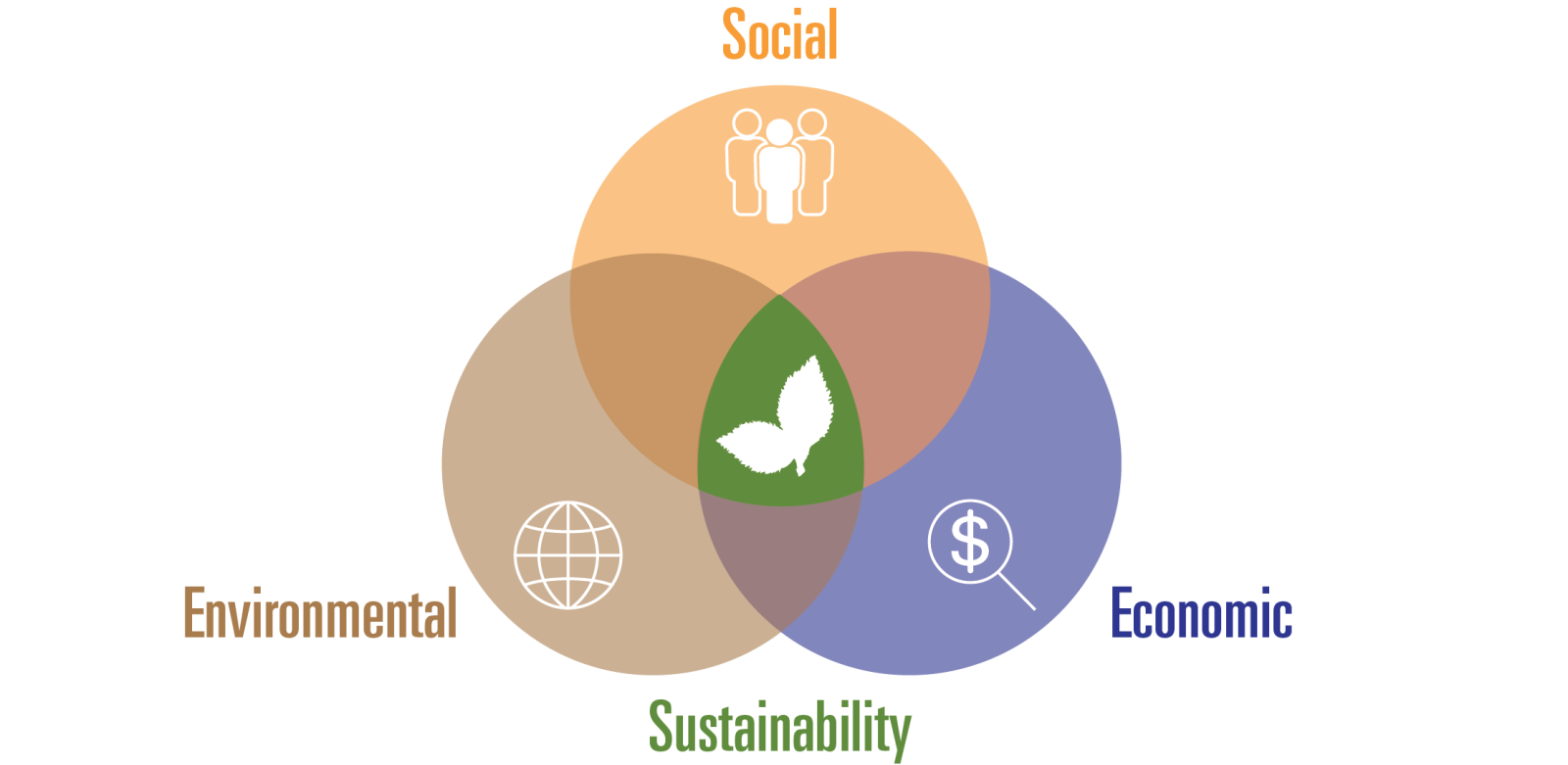
|
